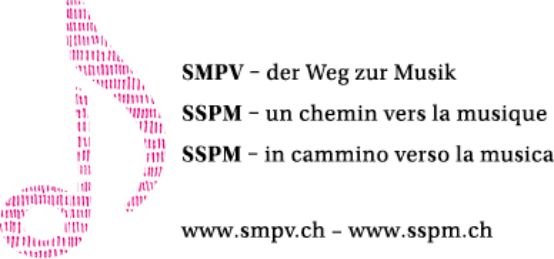"Elvirissima 2021" under the sign of the consequences of the virusPrix

After being held online last year due to the coronavirus pandemic, this year's Elvira-Lüthi-Wegmann Foundation Singing Competition will once again be held in person, on May 24 at the MaiHof in Lucerne. While the gradual reopening is gratifying, the competition also bears witness to the profound impact of the pandemic on musical life.
Interview : Lucas Bennett - Marianne Wälchli, President of the Foundation Board, gives her impressions of the selection phase and comments on current trends in the choice of repertoire. Marianne Wälchli is a singer, singing teacher, President of the SSPM Bernese Section and member of the SSPM Central Committee. Since 2019, she has been Chairman of the Board of the Elvira-Lüthi-Wegmann Foundation.
Marianne Wälchli, a year ago, "Elvirissima" was held online because of the coronavirus. This year's competition can be held face-to-face again, but we're just coming out of a year-long hiatus. What are the consequences for registrations, and are there any major differences from last year?
There are considerable differences. This time we received 40 entries, almost twice as many as in previous years. With a few exceptions, all the entries came from the German-speaking part of Switzerland, whereas in other years there were also a number from the French-speaking part. Another peculiarity: usually, more than half the entries come from abroad. This time around, they represent less than 10 %, and almost all the people concerned have been living in Switzerland for a long time. This is clearly an effect of the situation caused by the coronavirus. In addition, a surprisingly high number of registered singers have completed their training and are already members of the SSPM. This was otherwise rather rare. This shows me that people are hanging on to every branch, seizing every opportunity to present themselves. These observations point to long-term consequences of the pandemic that we should be looking at.
What do you think is the most pressing problem?
If cultural life slowly begins to reopen, three batches of musicians will be rushing to market simultaneously. Inevitably, many will find themselves in precarious situations. On the contrary, experienced and well-established colleagues are now accepting engagements that would previously have been offered to students.
Do you think we're training too many musicians?
This is obviously a delicate point. It's true that I'm beginning to wonder whether we're not raising false hopes too often. An example from the competition: on the jury, we get a lot of recommendations. Sometimes, a teacher will recommend a large number of singers and be convinced that all of them are going to have "important" careers. But the market simply doesn't lend itself to this. I still find it problematic to give so many people the impression that they'll have a career one day, when it turns out that there's no work for them.
A central and often-discussed issue at competitions is the choice of repertoire. Is there a trend this year?
What's immediately striking is that the great "hits" of the repertoire are almost completely absent. The vast majority of singers entered are sopranos, yet there was no Pamina among the Swiss, and only one petite and no grande comtesse. There are virtually no arias from Mozart's Da Ponte operas (one Mozart aria is required), nothing from Puccini apart from a single "Quando m'en vo", and very little from Verdi. You could say that there are no very dramatic voices. But I have the feeling that, generally speaking, we hesitate to tackle the great works. We'd like to be original by choosing music that's less demanding and sometimes a little unusual. But these are often pieces that don't really lend themselves to a competition. What counts in a competition is expression and effect - in principle, one should choose the program so as to be able to win with each piece. I wonder how participants are advised in this respect.
Perhaps it also reflects a growing scepticism towards a classic canon of the repertoire...
This may play a role, but we mustn't forget what we're losing with this change: as a teacher, I've discovered how much the study of the great repertoire already brings to training. Of course, you don't give Puccini to a beginner, let alone Wagner. But an Ave Maria fromOtello by Verdi, for example, can be envisaged sooner than one might think, and it already has that specific, subtle Verdi structure that you have to seek out right from the start. In this way, we work intensively on timbre and stylistic subtleties, an essential prerequisite for the rest of the work. Roles like Pamina or Susanna cannot be sung just like that, and that's why studying them is so profitable. The same applies to the great lieder. There are good reasons why this repertoire is so important: great music carries you and encourages you to keep striving. There seems to be a widespread expectation these days of being able to progress without confronting the great repertoire. But in this case, something essential is missing. For there can be no question of purely technical work; technique is merely a means of conveying musical expression. What's essential is the link between the two: so a singer with an average voice but above-average musicality can achieve above-average vocal quality.
Twenty candidates will appear before the jury on May 24. The competition includes the following prizes:
1st prize CHF 9600.-
2nd prize CHF 4800.-
3rd prize CHF 2,000
4th prize CHF 1000.00
The competition takes place face-to-face. However, due to the coronavirus situation, no public is admitted. A recording of the competition will be made available on the Internet.
Find out more:








